Baby Elongated Tortoise for Sale – Exotic Pets | Captive Bred Babies
$249.99
Discover captive bred baby elongated tortoises, excellent smaller species that are hardy and easy to care for. Find exotic pets for sale now.
Category: TORTOISE for sale
Elongated Tortoise: A Complete Guide for Enthusiasts
The **elongated tortoise** (*Indotestudo elongata*) is a fascinating and unique species of tortoise native to parts of South and Southeast Asia. Known for their characteristic long, narrow shell and gentle nature, elongated tortoises have become increasingly popular among reptile enthusiasts. If you’re considering adding one of these wonderful tortoises to your family or are simply curious about them, this guide will provide an in-depth look at the species, their care requirements, and where you might find an **elongated tortoise for sale**.
Whether you’re interested in a **baby elongated tortoise for sale** or looking to care for an **adult elongated tortoise**, this guide will cover everything you need to know—from habitat and diet to common health concerns and the best way to care for these gentle reptiles.
Overview of the Elongated Tortoise
The **elongated tortoise** is named for its distinctive, elongated shell, which can grow up to 12 to 14 inches in length in adults. Their unique appearance, combined with their mild temperament, makes them a popular species for both beginner and experienced tortoise keepers. Elongated tortoises are native to a range of habitats across Southeast Asia, including regions of India, Bangladesh, Myanmar, Thailand, Laos, Vietnam, Cambodia, and Malaysia.
These tortoises are often found in forested areas with dense vegetation, making them well-suited to environments that offer both warmth and humidity. In captivity, it’s essential to replicate this environment to keep them happy and healthy.
Physical Characteristics
Elongated tortoises are immediately recognizable due to their unique shell shape. Their carapace, or upper shell, is long and narrow, with a high dome. The coloration can vary from light yellowish to dark brown, often with dark spots on the scutes (the individual plates that make up the shell). This subtle but distinctive coloration allows them to blend into the forest floor, helping them avoid predators in the wild.
Their plastron (the lower part of the shell) is typically lighter in color, usually a pale yellow or cream, sometimes with dark patches. Elongated tortoises have relatively long limbs, which help them move efficiently through forested environments. Their feet are well-adapted for walking over rough terrain, and like many tortoise species, they have strong claws that are used for digging and foraging.
Behavior and Temperament
Elongated tortoises are known for their calm and gentle disposition, making them a favorite among reptile keepers. They are relatively shy creatures and will often retreat into their shells when startled, but with time and patience, they can become accustomed to human interaction. They are typically active during the early morning and late afternoon, spending much of their time foraging for food.
In captivity, these tortoises are generally solitary, but they can be housed with others of the same species if there is enough space. It’s important to monitor them carefully if kept in groups, as some individuals may show signs of aggression, particularly during feeding time or mating season. However, elongated tortoises are not known for being overly aggressive and can coexist peacefully if housed correctly.
Natural Habitat
In the wild, elongated tortoises thrive in warm, humid environments such as tropical forests and grasslands. They prefer areas with plenty of vegetation, where they can find both food and shelter. These tortoises are often found in shaded areas, as they are not particularly fond of direct sunlight, preferring to spend their time in the underbrush or beneath fallen leaves.
Given their native habitat, elongated tortoises do best in enclosures that mimic the warm and humid conditions of Southeast Asia. Whether you’re caring for a **baby elongated tortoise** or an adult, it’s essential to provide an environment that closely matches their natural habitat.
Housing and Enclosure Requirements
Creating the right environment for your elongated tortoise is crucial to its health and happiness. Because these tortoises are accustomed to warm, humid conditions, you will need to provide an enclosure that mimics their natural surroundings as closely as possible.
Indoor Enclosures for Hatchlings and Juveniles
When caring for an **elongated tortoise baby**, it’s best to start with an indoor enclosure that is spacious enough for them to move around comfortably. A 4-foot by 3-foot tortoise table or terrarium is suitable for hatchlings and young tortoises. Ensure that the enclosure has plenty of room for the tortoise to explore, along with some hiding spots where they can retreat if they feel stressed or need to cool down.
The substrate in the enclosure should be able to hold moisture to maintain the humidity level that elongated tortoises need. A mixture of coconut coir, cypress mulch, and organic soil works well. The humidity level should be maintained between 60-80%, and the enclosure should be misted regularly.
Outdoor Enclosures for Adults
As your tortoise grows, it will eventually need to be moved to a larger outdoor enclosure, especially if you live in a warm climate. **Adult elongated tortoises** require plenty of space to roam, as well as access to shade and a water source. An outdoor pen that is at least 8 feet by 6 feet is ideal for one adult tortoise, but larger enclosures are always better.
Make sure the outdoor enclosure has both sunny and shaded areas so the tortoise can regulate its body temperature. Tortoises enjoy burrowing, so it’s important to have a substrate that allows them to dig. You should also provide a shallow water source for the tortoise to soak in, as elongated tortoises enjoy the humidity that water provides.
Temperature and Lighting
Elongated tortoises are cold-sensitive and require consistent warmth. The ambient temperature in the enclosure should be maintained between 75-85°F, with a basking area that reaches up to 90-95°F. At night, temperatures can drop slightly, but it’s important to avoid temperatures below 70°F.
In addition to heat, **elongated tortoises** need UVB lighting to help them synthesize vitamin D3, which is essential for calcium absorption and overall health. If your tortoise is housed indoors, make sure to provide a UVB bulb that is on for 10-12 hours a day.
Diet and Nutrition
In the wild, **elongated tortoises** are primarily herbivores, feeding on a diet of leafy greens, fruits, flowers, and occasional invertebrates. In captivity, it’s important to provide a well-rounded diet that closely mimics what they would eat in the wild.
Recommended Foods
– **Leafy Greens**: Collard greens, mustard greens, dandelion greens, and turnip greens should form the bulk of their diet.
– **Vegetables**: Carrots, zucchini, bell peppers, and squash can be added in moderation.
– **Fruits**: Fruits such as bananas, strawberries, and papayas can be offered occasionally, but due to their high sugar content, they should not be a staple.
– **Flowers**: Safe flowers such as hibiscus, rose petals, and dandelions can be a great addition to their diet.
Calcium and Supplements
To ensure healthy bone and shell development, it’s important to dust the tortoise’s food with calcium powder two to three times a week. If your tortoise is housed indoors, you may also need to provide a vitamin D3 supplement to help them metabolize calcium.
Common Health Issues
Like all reptiles, **elongated tortoises** can suffer from a range of health issues if not cared for properly. Fortunately, most health problems can be prevented with proper husbandry and diet. Here are some common health concerns:
– **Respiratory Infections**: Elongated tortoises are sensitive to cold temperatures, and if kept in an environment that is too cold or damp, they can develop respiratory infections. Signs include wheezing, nasal discharge, and lethargy. To prevent this, always ensure their enclosure is kept at the proper temperature and humidity.
– **Shell Deformities**: Poor diet or lack of UVB lighting can lead to metabolic bone disease (MBD), which causes the shell to become soft or deformed. Providing a proper diet rich in calcium and ensuring your tortoise receives adequate UVB exposure can prevent MBD.
– **Parasites**: Tortoises can be susceptible to both internal and external parasites. Regular health checks and maintaining a clean enclosure can help prevent parasitic infections.
Breeding and Reproduction
Elongated tortoises are relatively easy to breed in captivity, but there are a few things to keep in mind. Females typically lay between 3-7 eggs at a time, and the incubation period can last anywhere from 90 to 120 days, depending on the temperature. The eggs should be kept in an incubator at a temperature of around 82-85°F with high humidity.
Once the eggs hatch, the **baby elongated tortoises** should be housed separately from adults to prevent accidental injury. Hatchlings are particularly vulnerable during their first few months of life, so extra care should be taken to ensure their enclosure is safe and free from hazards.
Finding Elongated Tortoises for Sale
If you’re ready to add an **elongated tortoise** to your collection, it’s important to find a reputable breeder or seller. **Elongated tortoises for sale** can often be found through specialty reptile shops or breeders who focus on captive breeding.
Baby Elongated Tortoises for Sale
When purchasing a **baby elongated tortoise for sale**, look for a healthy and active individual. Hatchlings should have clear eyes, a smooth shell, and a good appetite. Avoid tortoises that appear lethargic, have sunken eyes, or show signs of shell deformities, as these could be indicators of poor health or improper care. It’s crucial to inquire about the tortoise’s diet and living conditions with the breeder or seller to ensure that the **baby elongated tortoise** has been properly cared for.
Healthy **elongated tortoise babies** are typically active and curious, exploring their surroundings and eating regularly. Reputable sellers will provide you with information on how to properly care for the tortoise, including what they’ve been feeding it and the humidity and temperature settings of their enclosure. This ensures that the tortoise will transition smoothly to its new home.
Adult Elongated Tortoises for Sale
If you’re more interested in getting an **adult elongated tortoise**, there are a few things to keep in mind. Adults are typically easier to care for than hatchlings, as they are more resilient and less delicate. However, they require more space due to their larger size, so be sure you have an appropriate enclosure ready for them.
When purchasing an **adult elongated tortoise**, check for signs of good health, such as smooth skin, clear eyes, and a firm shell. It’s also wise to ask the breeder or seller about the tortoise’s temperament, as some adults can become stressed or aggressive if they’ve been mishandled or mistreated in the past.
You can often find **elongated tortoises for sale** at reptile expos, specialty pet shops, or online breeders who specialize in captive-bred tortoises. Be sure to do your research to ensure you’re buying from a responsible breeder who prioritizes the health and well-being of their animals.
Legal and Ethical Considerations
When buying an **elongated tortoise**, it’s important to be aware of any local or international regulations regarding their ownership. In some regions, elongated tortoises may be protected due to concerns about habitat loss and overcollection in the wild. Be sure to obtain the necessary permits or documentation to ensure you’re keeping the tortoise legally.
It’s also crucial to avoid purchasing wild-caught tortoises, as this contributes to the decline of wild populations and can lead to problems with disease and stress. Always buy from breeders who focus on captive breeding, as this helps conserve wild populations and ensures that the tortoise you’re getting is healthy and well-adjusted to life in captivity.
Conservation and Threats to the Elongated Tortoise
Like many tortoise species, the **elongated tortoise** faces a number of threats in the wild. Habitat destruction, particularly the clearing of forests for agriculture and development, has significantly reduced their natural range. Additionally, they are often hunted for their meat or collected for the illegal pet trade, further endangering wild populations.
The **elongated tortoise** is currently listed as “Endangered” by the International Union for Conservation of Nature (IUCN), which means that conservation efforts are critical for their survival. Captive breeding programs play an essential role in preventing the species from becoming extinct, and by supporting breeders who focus on captive-bred tortoises, you can help reduce the demand for wild-caught animals.
If you’re passionate about conservation, consider supporting organizations that work to protect tortoises and their habitats. Spreading awareness about the challenges that elongated tortoises face in the wild is also an important part of ensuring their survival for future generations.
The Elongated Tortoise as a Pet
Owning an **elongated tortoise** can be a deeply rewarding experience for reptile enthusiasts. These tortoises are gentle, calm, and can live for decades with the proper care. Their unique appearance, combined with their laid-back temperament, makes them a favorite among tortoise keepers.
However, it’s important to remember that **elongated tortoises** require a significant amount of care and attention. They need a properly maintained enclosure, a well-balanced diet, and regular health checks to thrive. Additionally, they can live for more than 50 years in captivity, making them a long-term commitment.
If you’re ready to invest the time, energy, and resources into caring for an **elongated tortoise**, they can make a wonderful addition to your family. Their gentle nature and striking appearance make them a joy to observe and care for, and with the right setup, they can lead long, healthy lives in captivity.
Final Thoughts
The **elongated tortoise** is a truly remarkable species, and whether you’re looking for a **baby elongated tortoise for sale** or an **adult elongated tortoise**, it’s important to do your research and ensure you’re ready for the responsibility of caring for one. Their calm demeanor and unique appearance make them a popular choice among reptile keepers, but they require a specific environment and diet to thrive.
If you’re considering adding one of these tortoises to your collection, be sure to find a reputable breeder or seller, and always prioritize the health and well-being of the animal. With proper care, your **elongated tortoise** can live a long, fulfilling life, bringing you years of companionship and enjoyment.
So, whether you’re on the lookout for an **elongated tortoise for sale** or simply want to learn more about these amazing creatures, this guide provides everything you need to know to give your tortoise the best life possible. By providing the right environment, diet, and care, you can ensure that your tortoise thrives and remains a healthy, happy part of your family for years to come.
1 review for Baby Elongated Tortoise for Sale – Exotic Pets | Captive Bred Babies
Add a review Cancel reply
Related products
TORTOISE for sale
$249.99
$399.99
TORTOISE for sale
Redfoot Tortoise for Sale – Exotic Pets | Buy Yearling Redfoot Tortoise
Rated 4.00 out of 5
$249.99
TORTOISE for sale
Rated 4.00 out of 5
$1,599.99
TORTOISE for sale
$274.99
TORTOISE for sale
$174.99
TORTOISE for sale
Yellowfoot Tortoise for Sale – Find Exotic Pets for Sale | 8-13 Inches
$299.99
TORTOISE for sale
Baby Yellowfoot Tortoise for Sale – Exotic Reptile Pets | Blog
$199.99




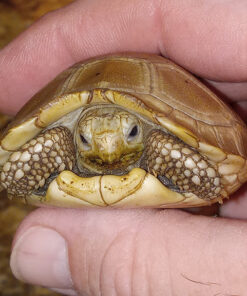


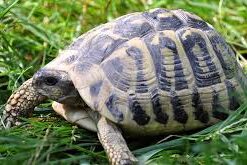
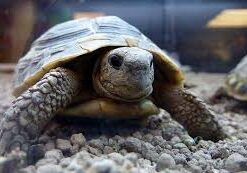
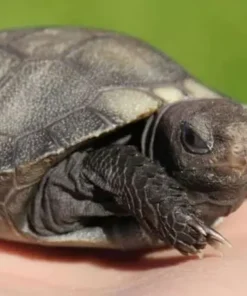
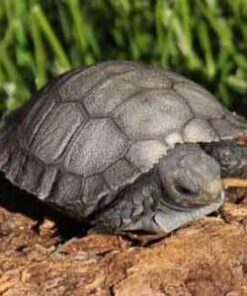
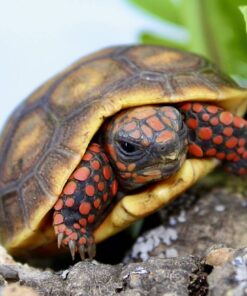
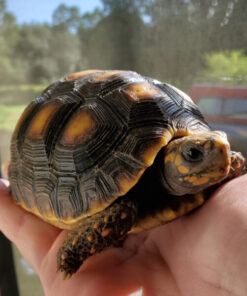

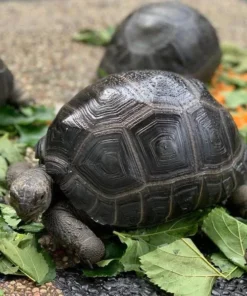
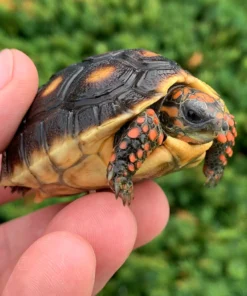
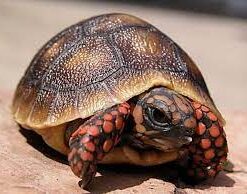

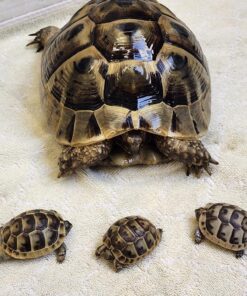
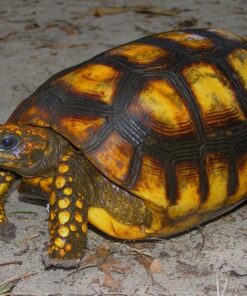



Evelyn Rodriguez –
I’m thrilled with my Elongated Tortoise! Their unique shape and gentle nature make them a wonderful pet. They’re easy to care for and love to explore. A fantastic choice for tortoise lovers—highly recommended for anyone seeking a charming companion.